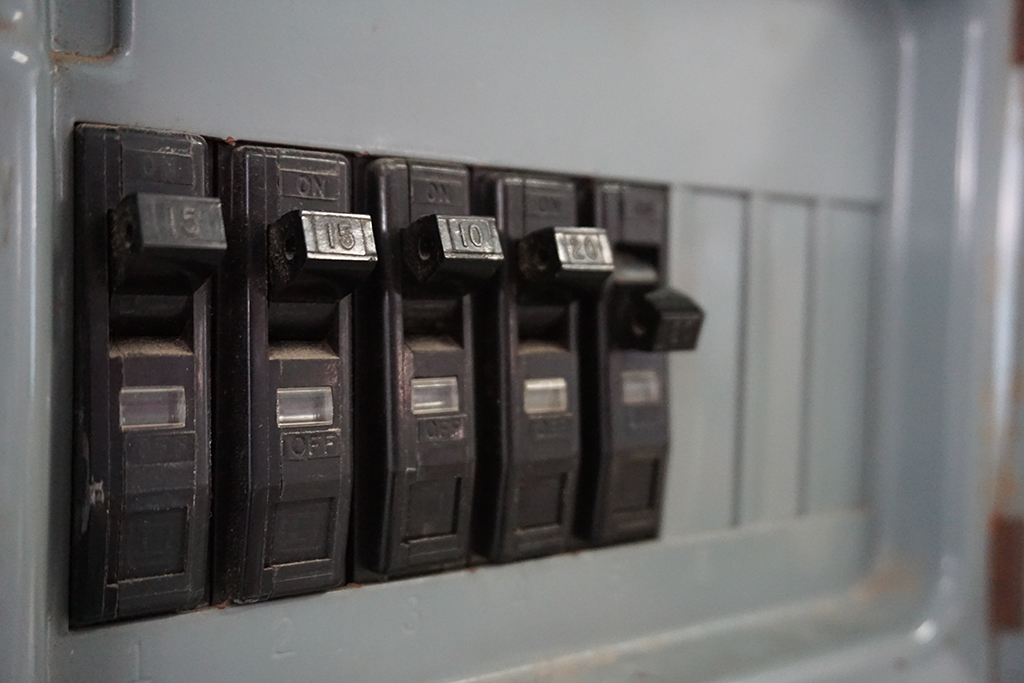
Electrician Tips: Signs to Look Out for with Your Circuit Breaker | Myrtle Beach, SC
Photo By BetterTogether at Shutterstock
The circuit breaker in your home is an indispensable part of your electric wiring. That’s clear when you look at it as a line of defense when it comes to protecting your home. In the event of a grid fault or a problem with any of your appliances, it protects your other appliances along with your entire home, keeping you safe and preventing damage that can be expensive to reverse. If any problems with your circuit breaker start to show, your best bet is calling an electrician to replace. It’s a worthwhile investment for your Myrtle Beach, SC, home.
If you’re wondering what signs to look out for when you’re trying to find out if your circuit breaker is in good condition, read on for some helpful tips.
1. Burning Smell
You can use your good old nose to see if there’s any need for you to replace your circuit brakes. Simply sniff around and pay attention to the burning odor. Usually, it comes from the panel. When you catch a whiff of this smell, it can be a clear and urgent sign that the wires and insulation in your home have overheated.
Overheated wires tend to mean that your circuit breaker is no longer able to protect your home. While this may not be an immediately worrying sign when you first spot it, especially when you’ve been experiencing it for a while, it’s a major sign that you immediately need to call an electrician. That’s because an electric surge in your home while it’s unprotected puts both you and your home at danger.
An overheated circuit breaker is not able to protect your home, meaning the best way forward for you is to have it immediately replaced. Before you call a professional to let them know that you are having a problem with your circuit breaker, it’s advisable for you to shut off the main power to your house. It’s the best way to ward off any kind of problem that can significantly impact your home.
2. Breaker That Doesn’t Reset
Usually, it should be an easy and simple process to reset your circuit breaker. When you keep resetting it but it fails to stay in reset mode, however, that means that there’s a real problem with your circuit breaker, and this is something to look into because it can mean your home might be at significant risk.
This is usually very clear. While a circuit breaker failing to remain reset can have something to do with the breaker not being very well calibrated, or having an internal monitoring problem, it can also be, in a much more worrisome situation, the result of your circuit breaker simply failing. In this case, you should not waste any time calling your electrician, who will see what the extent of the problem is, as well as how best to deal with it so that all your electronic appliances and your Myrtle Beach, SC, property is protected in the event of an electrical surge.
3. Physical Damage
A clear sign that your circuit breaker is in a state of significant disrepair is when you start to see actual signs of damage. You can usually spot these around the circuit breaker itself, though others are visible around outlets or the electrical appliances you have in your home.
Signs of physical damage show that the circuit breaker has undergone a significant amount of damage, meaning that you will need to immediately call an electrician. If you’ve noticed signs on the appliances you have in your home, you should have a professional come to have a look before more of your appliances begin to fail.
The most common sign of physical damage is scorch marks. These are a real sign that your wiring has melted, and melted tend to come before your appliances become faulty due to receiving excessive voltage, driving your replacement costs way up. In severe cases, a melted wire can result in your house catching fire when there’s a strong electric fault. Calling an electrician is the safest and most prudent thing to do.
4. Frequent Tripping
You can usually check if your circuit breaker is tripping when you turn on electrical appliances. The signs are even clearer if the appliances are heavy-duty and require a higher amount of current than the average household appliance. If yours is tripping, that’s a clear sign that it’s outdated, and the best move after realizing this is to get an electrician to come check it out and figure out the best way forward.
Breaking is exactly what circuit breakers do when too much power is routinely drawn through them. Not only is it highly frustrating to deal with a circuit breaker that is always constantly breaking when you turn a large appliance on, it can also mean that your home is only lightly protected in the event of an electrical surge.
To make sure there’s a problem with your surge for sure, you can try to turn your microwave, air conditioner, vacuum or any other electrically demanding appliance to see if the circuit breaker trips. Repeated tripping points to the fact that it’s close to failing, though even infrequent tripping can be a sign that complete failure isn’t far off. Calling an electrician is the smartest move in a case like this.
5. Old Age
Sometimes, a crucial sign that a circuit breaker is close to failing is right before your eyes. Simply the age of the circuit breaker can give you an idea of how long it can provide your home with able protection. Though these crucial pieces of electrical equipment are designed to last for decades, they do eventually fail. Constantly checking yours can be a sign that it’s no longer in the best shape. An inspection by an electrician can make you more certain of how well it’s keeping up with your electric needs or whether or not it’s time to get it replaced.
Circuit breakers are crucial parts of your home, and it’s essential to call an electrician to repair yours at the first sign of trouble. Call us at Mister Sparky of Myrtle Beach if you think your circuit breaker needs to be looked at for the benefit of your entire home.

